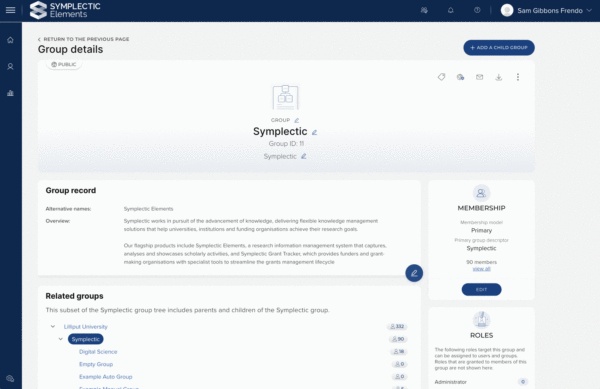We have continued the redesign and expansion of our Groups functionality, started in our last release. For v6.13, we have made further expansions to the Groups data model, adding support for configurable descriptive group types and introducing Group privacy settings. We have also begun to make this data available for re-use by adding it to the Reporting Database and the API. These enhancements are part of a bigger initiative which aims to to help organisations capture a wider range of metadata about their internal groupings and to significantly streamline the management of groups.

This release also includes the last major batch of enhancements to the Assessment Module coming out of our Assessment UX review last year. In this release we’ve introduced a number of new configuration options for the Module including a new ‘Viewer role’, and options to restrict the download of attachments. We’ve also made a number of smaller improvements to further streamline the user experience within the Module based on feedback from early adopters of the new Assessment functionality. We recently held a webinar about some of the new use cases you can now use the Assessment Module to support; if you missed it you can catch up with it on demand via our website.
For clients using the Research Funding Solution (RFS), this is a very exciting release which includes enhancements to the RFS finance system integration particularly to support ingesting project income and expenditure data. We’ve also introduced new project relationships, made enhancements to the review and approval functionality and introduced new quick actions for administrators.
Alongside this release, we are launching a new version of the Elements API. This new endpoint supports the introduction of the new group-related data, as well as making a number of breaking changes which move the API in step with changes made in the product since the last API version was released. We have also made a number of other improvements, many of which were based on feedback and requests from our community. Thank you for your continued contributions through the support site and your conversations with our team.
We would also like to make you aware that registration for this year’s European user day, planned for early July, will open shortly. If you would be interested in presenting a client spotlight or sharing your experience with a particular element of research information management during the event, please reach out to us – we’d love to hear from you.